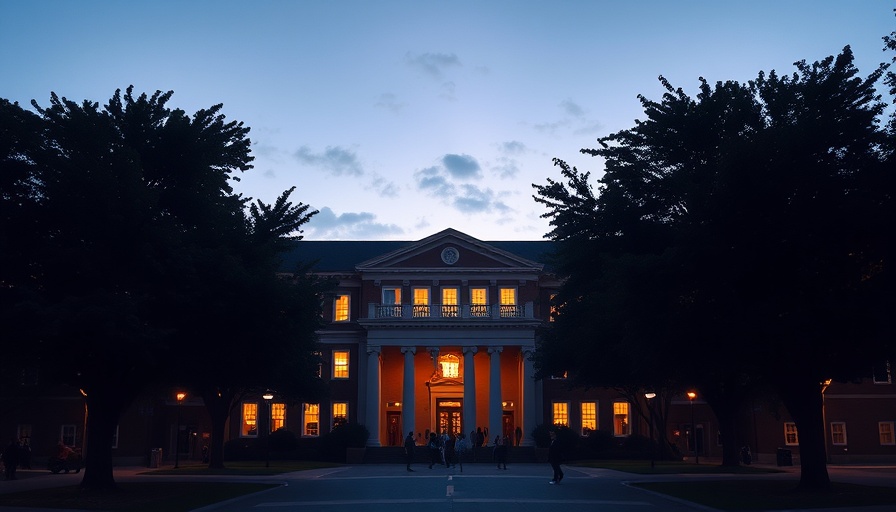
The Unexpected Clash: Harvard vs. Trump Administration
The recent confrontation between Harvard University and the Trump administration ignited a significant debate over higher education, free speech, and the influence of governmental power in academic affairs. This debacle began with a letter that Harvard thought was part of ongoing discussions, yet it turned out to be a flashpoint that could influence the landscape of educational policy. The controversy stems from a letter sent on April 11 by the administration's antisemitism task force, demanding changes across various aspects of the university's operations, prompting Harvard to take a stand against the White House.
Understanding the Context: What Sparked the Letter?
This letter included demands regarding admissions, faculty hiring, and curriculum changes that many perceived as excessive. As a prestigious institution, Harvard found itself at the intersection of political discourse and institutional autonomy. The timing of the letter added tension to the situation, as university officials believed progress was being made in dialogue with the administration prior to the unexpected communication. They viewed the demands as obstacles rather than the basis for cooperation.
Diversifying Perspectives: What Does This Mean for Higher Education?
The conflict has opened up debates about the relationship between universities and the government. Many educators and students expressed concern about the implications of governmental overreach into academic decision-making, a sentiment echoed across campuses nationwide. A response from the academic community illustrates a growing urgency to protect not only institutional autonomy but also the broader principle of academic freedom, often seen as essential to the pursuit of knowledge and truth.
Looking Forward: What Does This Conflict Signal?
As the fallout from the confrontation unfolds, many are left wondering about the long-term effects on university policies and the future of similar interactions between educational institutions and government entities. Experts suggest that this episode may catalyze stricter protections for academic institutions against executive encroachment. If universities across the country rally to defend their rights, this could represent a larger movement in the fight to preserve independent thought in higher education.
Emotional Responses: Voices from the Community
Responses from Harvard students and faculty have varied, reflecting a college culture that values both open dialogue and resistance to alarming demands from authority figures. Students expressed apprehension about what the letter signifies for future negotiations and dialogues between universities and governmental bodies. For many, this confrontation embodies a critical moment where educational integrity is tested against political pressures.
A Broader Implication: The National Conversation on Antisemitism
This situation also intersects with national conversations regarding antisemitism and the role of educational institutions in addressing societal issues. While the letter came from a task force with a focus on combating antisemitism, its demands raised questions about the effectiveness of its approach and the genuine sincerity behind the request, leading many to wonder whether these issues were being politicized for gain.
Conclusion: What’s Next?
As the discourse continues, it’s essential for all stakeholders—students, educators, and the broader community—to reflect on the ramifications of such interactions. The ability to navigate discussions surrounding sensitive societal matters must be approached with the utmost care, ensuring diverse voices are heard while safeguarding academic freedom. Looking forward, this incident serves as a crucial reminder of the delicate balance needed in the relationship between universities and governing authorities.
 Add Row
Add Row 
 Add
Add 


 Add Row
Add Row 
 Add
Add
Write A Comment